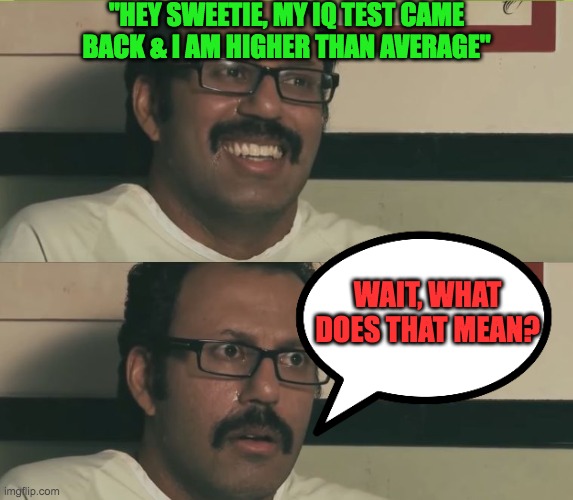Settling Down in a Relationship
I have travelled a great deal throughout Latin America–a place where the people are warm, friendly and very sexual or “touchy” compared to cold Europeans. As a result of this (and their higher-than-average good looks if you ask me), it’s infidelity and adultery rates are no rarity. In fact, I’ve found out that it’s quite rare in some families throughout Latin America if they have an uncle or aunt who remained totally faithful during the extent of their relationship. It’s a bit of a chicken or the egg situation but there remains immense jealousy, paranoia, mistrust, domestic violence and divorce simply due to those cheating on their partner.
Upon searching about IQ (an important but dangerous area to search about), I’ve come across interesting findings with respect to intelligence and ones interest in monogamous or exclusive sexual relationships. They are correlated–and tightly so.
Findings
The higher the IQ, the higher the likelihood that men and women are supportive of monogamous relationships. Interestingly, I can see this in my own life. I know some intelligent folks who are true to each other in every way whereas others, lower on the intellect spectrum, make a habit of partying, lying and sleeping around.
"Thus, the Savanna-IQ interaction hypothesis would predict that more intelligent individuals are more likely to be open to monogamy and less likely to be open to polygamy. In fact, more intelligent men are more likely to value monogamy and sexual exclusivity than less intelligent men (Kanazawa, 2008b)"
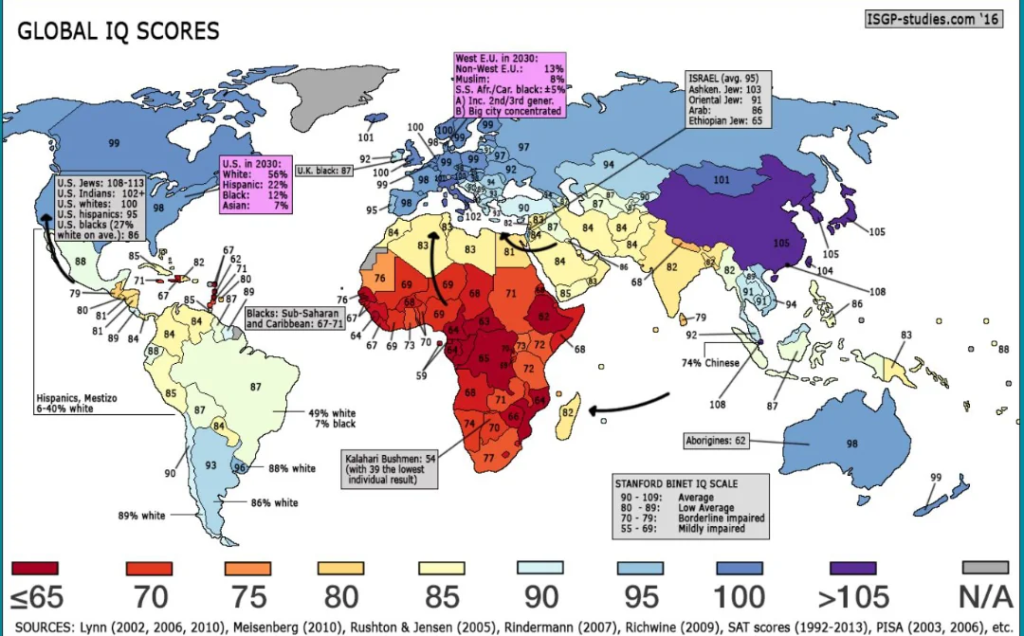
Sex and IQ Finding
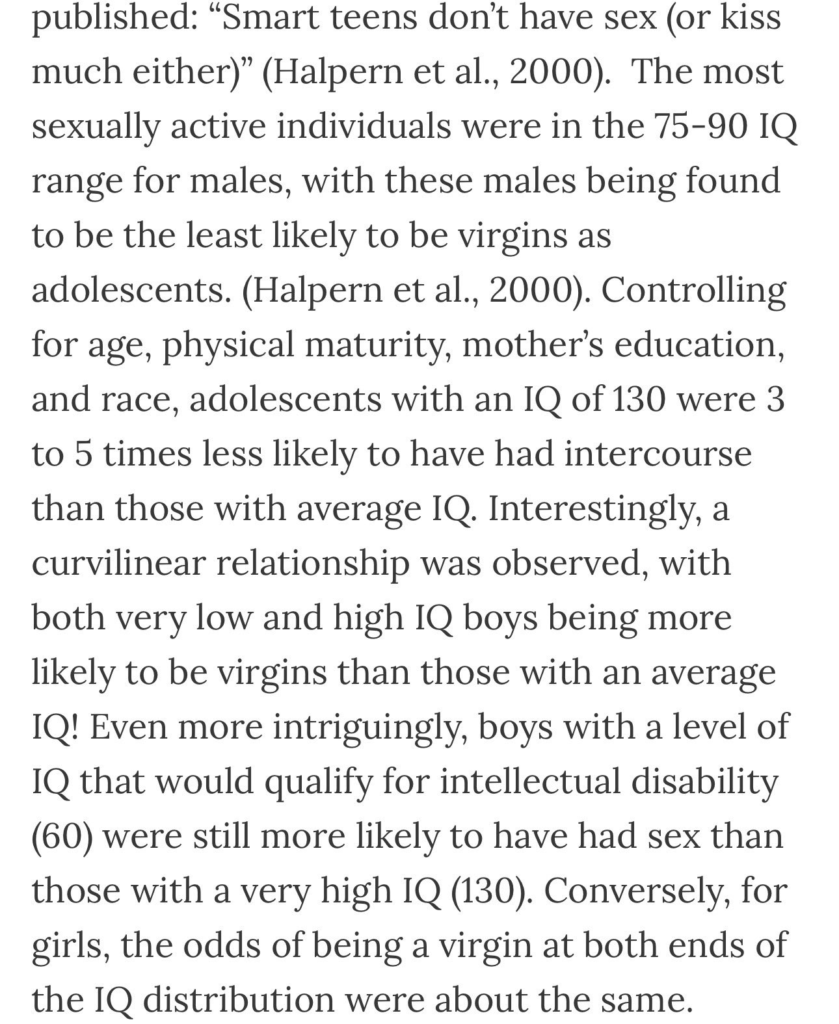
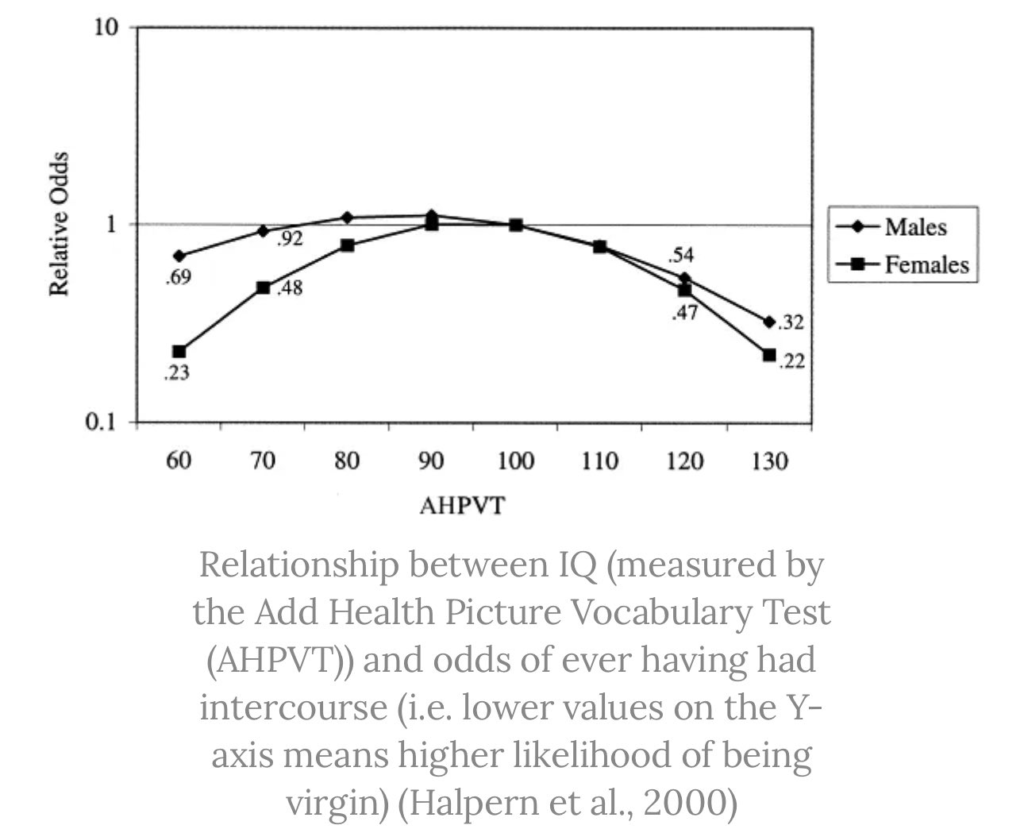
“Intelligence is negatively associated with sex frequency,” says Rosemary Hopcroft, a sociologist at the University of North Carolina
Dating and IQ
While I think Bumble is a foolish platform for a dating app (women engage everything first), women, for the most part, dictate the future longevity in a relationship. Whether this be due to how the man reacts to children, how he expresses his immune system, his personality metrics, or other dynamics, a woman has the final say biologically (which makes sense if you’re going to bare a child for 9 months).
One of these dynamics that women judge their future partner also relates to IQ. A woman, one who’s in a happy relationship at least will not be with a man who doesn’t have an IQ at least the same as her own or higher. For men, the effect is null. This means (for the female readers out there) that the same of men who are viable partners increasingly shrinks as female intelligence increases. I’m sure you can anecdotally report this to be true.
Marriage
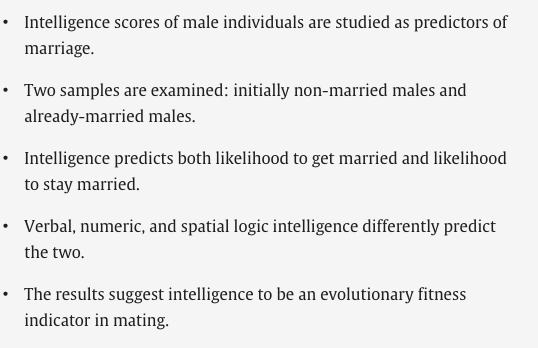
The following is an abstract from Taylor et al, 2005 (Childhood IQ and marriage by mid-life: the Scottish Mental Survey 1932 and the Midspan studies) Personality and Individual Differences, Vol 38 (7):
The study examined the influence of IQ at age 11 years on marital status by mid-adulthood. The combined databases of the Scottish Mental Survey 1932 and the Midspan studies provided data from 883 subjects. With regard to IQ at age 11, there was an interaction between sex and marital status by mid-adulthood (p = 0.0001). Women who had ever-married achieved mean lower childhood IQ scores than women who had never-married (p < 0.001). Conversely, there was a trend for men who had ever-married to achieve higher childhood IQ scores than men who had never-married (p = 0.07). In men, the odds ratio of ever marrying was 1.35 (95% CI 0.98–1.86; p = 0.07) for each standard deviation increase in childhood IQ. Among women, the odds ratio of ever marrying by mid-life was 0.42 (95% CI 0.27–0.64; p = 0.0001) for each standard deviation increase in childhood IQ. Mid-life social class had a similar association with marriage, with women in more professional jobs and men in more manual jobs being less likely to have ever-married by mid-life.
In other words, the following tracks with my previous point about how incremental increases in IQ for men advances the likelihood of long-term dating success (very statistically significant finding) whereas this is only partly the case for women or not at all. The professional women vs. manual job work finding is a great case of this. Interestingly, the finding displays the constancy of IQ even from childhood (age 11) to adulthood.
MindBlown
A study completed by Kleisner, Chvatalova & Flegr in 2014 in the journal PLoS One revealed that subjects were able to accurately predict IQ of men, but not in women. The interesting part is that they were only asked to rate their IQ by judging form a photograph of the person; and yet they were still able to judge accurately (for men). What goes even further is that facial shape and attractiveness was not a predicting factor in intelligence, leaving a mysterious element to the predicting factor.
Do you think there’s demand for a new company that seeks connect people for long-term relationships? Contact me here with your interest to partake
#StayOnTheBall
